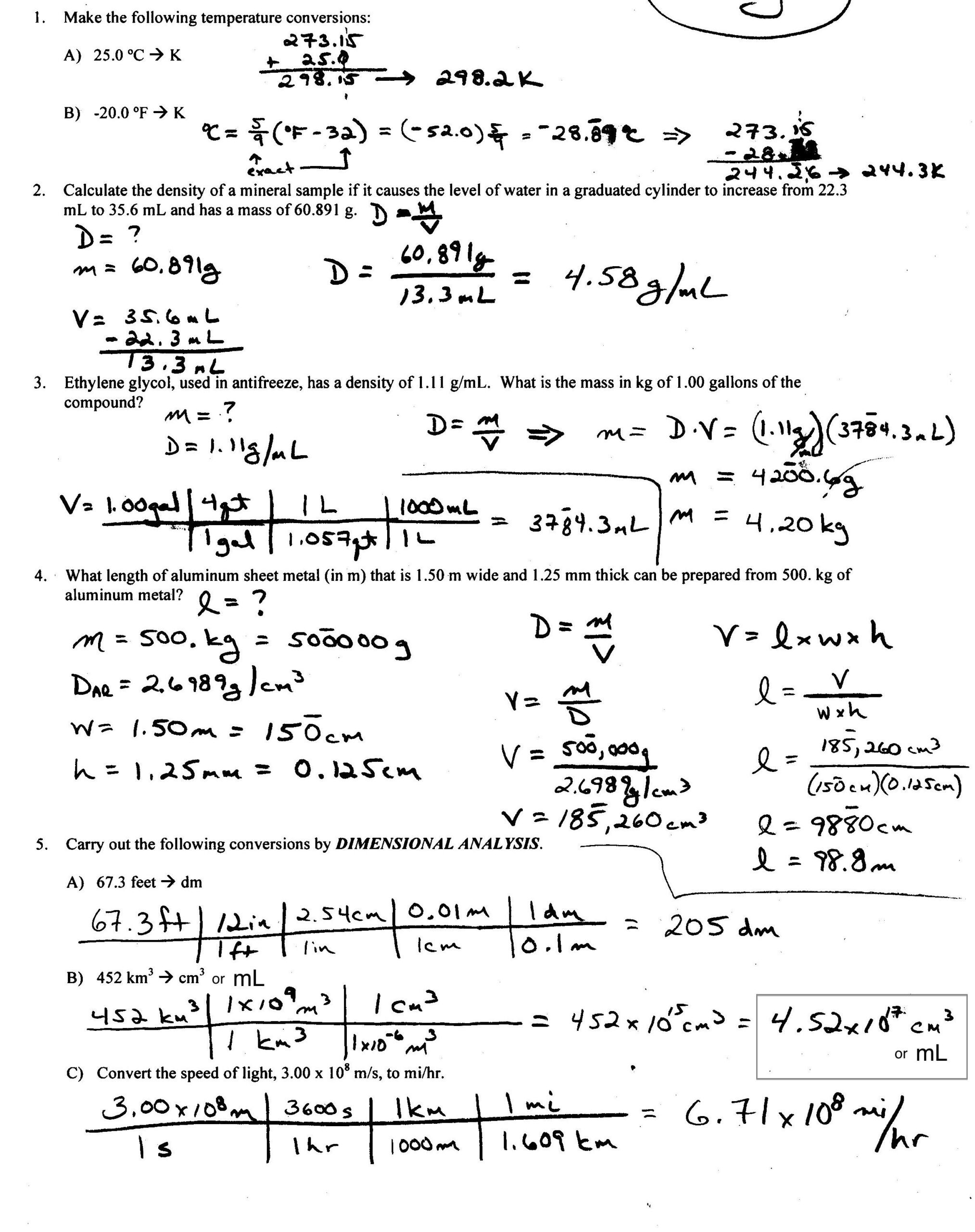Density Practice: Simple Problems Worksheet

Ever found yourself baffled while trying to solve basic density problems in your science class? Fear not, as this comprehensive guide will turn you from a density doubter into a density doctor! Understanding density is pivotal in sciences like chemistry, physics, and earth sciences. Here's a straightforward dive into density calculation for beginners.
What is Density?


Density, ρ (rho), is the measure of how much mass is packed into a given volume. Mathematically, it's expressed as:
- ρ = m/V, where:
- ρ is density
- m is mass
- V is volume
Units of Measurement

Density's units are derived from mass and volume units. Commonly, we use:
- g/cm³ - grams per cubic centimeter
- kg/m³ - kilograms per cubic meter
✍️ Note: Remember that 1 cm³ = 1 ml, which makes calculating density in liquids straightforward.
Calculating Density: The Basic Steps

1. Gather Your Information

Before you start, ensure you have:
- Mass of the substance
- Volume occupied by that mass
2. Plug Into the Formula

Using the formula ρ = m/V, substitute the mass and volume you’ve gathered into the equation.
3. Solve for Density

Perform the division, and voila! You’ve calculated the density.
✍️ Note: If volume is not directly given, you might need to calculate it. Use the appropriate formula depending on the shape of the object (V = l x w x h for a rectangular solid, etc.).
Examples of Density Problems

Example 1: Liquid in a Cylinder

Suppose you have 250 mL of a liquid that weighs 225 grams.
- Mass (m) = 225 grams
- Volume (V) = 250 mL (which is the same as 250 cm³)
- Density (ρ) = m/V = 225 g / 250 cm³ = 0.9 g/cm³
Example 2: A Metal Block

A metal block has dimensions of 2 cm x 3 cm x 5 cm and a mass of 240 grams.
- Volume (V) = 2 cm x 3 cm x 5 cm = 30 cm³
- Mass (m) = 240 grams
- Density (ρ) = 240 g / 30 cm³ = 8 g/cm³
Why Learn Density?

Density plays a crucial role in:
- Material Identification: By knowing the density, you can often identify unknown substances.
- Floatation: Density governs whether an object will sink or float in a fluid.
- Transportation: It's vital for understanding load capacities and stability.
- Meteorology and Oceanography: Helps in studying ocean currents and weather patterns.
Common Pitfalls and How to Avoid Them

When calculating density, keep these in mind:
- Correctly measure the dimensions for calculating volume.
- Be cautious with units; ensure they match for consistency.
- Avoid guessing or estimating; use precise measurements.
✍️ Note: Temperature can affect both the mass and volume of a substance, thereby changing its density. Always state the temperature if accuracy is required.
In Depth: Density and Material

Every material has its unique density which can serve as a "fingerprint" in identification processes. Here's a simple table of some common materials and their approximate densities:
| Material | Density (g/cm³) |
|---|---|
| Water | 1.00 |
| Aluminum | 2.70 |
| Iron | 7.87 |
| Gold | 19.3 |

✍️ Note: Density can vary with composition, temperature, or pressure, so these values are only for pure substances at standard conditions.
A Recap

Throughout this guide, we've covered what density is, how to calculate it, why it matters, and how to avoid common mistakes when solving density problems. Understanding and applying these concepts can help you in various scientific and real-world scenarios, from identifying materials to understanding buoyancy and transport logistics. This knowledge is not only for scientists but for anyone curious about the physical world around them.
How do I measure volume when the object isn’t a simple shape?

+
Use the water displacement method. Fill a container with water, record the initial volume, submerge the object, and note the change in water level to find the volume.
Does temperature affect density calculations?

+
Yes, temperature can cause materials to expand or contract, thus changing their volume. The density will change unless the mass changes correspondingly.
What if I need to calculate the density of a gas?

+
For gases, you’ll need to consider pressure and temperature because gases are compressible. Use the Ideal Gas Law to relate density to these factors.
Can an object have varying density?

+
A single object can have varying density if it’s not uniform throughout. This is called “apparent density,” which might not give you the true density of the material itself.